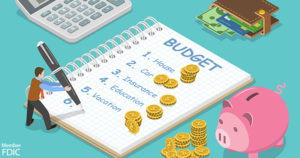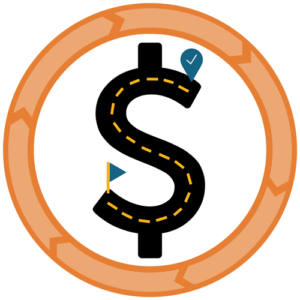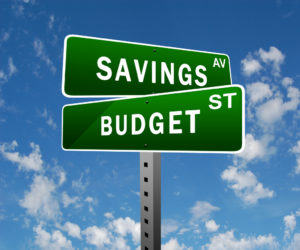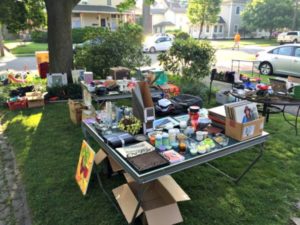You’ve taken the first step and booked your vacation.

You’ve put down a small deposit, and you’re starting to wonder, “how will I get this paid off in time?”.

You don’t want to finance it, or have to put it on your high-interest credit card, so what’s left? We are asked this question by clients at least once a month, so here are a few of our ideas of how to save money for your next vacation.
Establish a budget.



First and foremost, if you’re not working with a written budget every month, you should be. Vacation saving not withstanding, everyone needs a budget; even if it’s just to keep you on track each month with your daily, weekly, and monthly expenses. Here’s my take on it. You can’t effectively set money aside for something unless you know exactly what you have coming in and going out. Set yourself up with a simple spreadsheet that lists your income and your regular expenses each month. Be thorough. Put the things in your expenses column that you regularly or routinely spend each month, not just your bills. Groceries, gas, cigarettes (if you smoke), anticipated (or regular) dining out expenses, anything you normally spend money on each month. Take your bank statement from the previous month and add it all up. Once it’s down on paper and you can see at a glance what you have coming in and what you are actually spending, you can then work on manipulating it to put money away for something big like a vacation.
Pay yourself.

This is important. Once you have a budget established in writing, allocate 5% of your monthly income for your savings. One thing that worked well for Ladean and I was opening up a second free checking account with our bank and linking it to our primary account, so that we could easily slide money back and forth between the two. Our main account is our “household” account, and the second is for our trips we take. Each payday, we automatically set it up where a certain amount is automatically transferred to the second account as soon as our direct deposits come in. We do 10%, but you can start out small at 5% and adjust it as you see fit each month. After awhile, those automatic transfers become almost invisible to us. “Out of sight, out of mind”. Leave your money in that second account and allow it to grow each payday.
Trim where you can.

Take a look at your monthly expenses on your new budget. In fact, do it for a couple or three months back and see where your money has gone. If you find yourself dining out 8 times a month (twice a week), cut that back to maybe only once a week and save your money by eating at home. The difference may be small each meal, but over the course of 6 months, you’ll be surprised how easily the savings add up.
One thing that worked for us was cutting our cable bill out of the equation. We figured out that just having internet from our cable company and NOT having the “bundle” that included cable TV saved us HALF. That’s right. HALF. Our bill with our local cable company went from $140/month to just $70/month by just eliminating cable. We were already subscribing to Hulu, Amazon Prime, and Netflix, and many of the shows we were watching on network stations were available a day later on Hulu. We were rarely home at the time that our shows were airing anyway, and we were always either watching them on-demand from the network or using our DVR to watch them. It just made sense to cut out the cable and simply watch them via one of the online services. If you need local programming, there are tons of inexpensive but highly effective HD antennas you can get to pick up all of your local channels. It’s just a thought…
Trim your utilities by as much as 5% to 10% by simply being more aware. Turn the lights off in rooms when you’re not occupying them. Use a table lamp versus the overhead room lights when you can. Switch your light bulbs to lower wattages or use energy-efficient light bulbs. Instead of washing several small loads of laundry a week, only do one or two larger loads, saving you laundry soap AND water. Turn your thermostat down a few degrees (or up in the summer time) when you leave the house for the day to go to work, and return it to normal when you get back. We keep our thermostat turned down a little more than normal even when we are at home and just wear warmer clothing when we are relaxing or lounging around the house. Simple things each day can add up at the end of the month when your utility bills come in. And those savings you are seeing? Don’t spend it. Slide that money over into your second account to add to your vacation money.
Bundle when and where you can.

Here’s a little side note for you. This is a trick I use to save even more money. There are a lot of gift card merchants out there who offer points or discounts for gift cards. Sam’s Club offers gift cards usually at 10% off of their face value. Speedway offers points for gift card purchases, same as Kroger. For the things we already purchase or plan to purchase, we pre-purchase gift cards from Speedway and then use the points for free gas cards. Whether paying our Hulu or Netflix accounts, making a purchase at Amazon, or even going out to eat at a restaurant, we purchase the gift cards to use every month (money that is ALREADY budgeted to use), and let the points add up. When it comes time for our vacation, we cash in our points for fuel cards, and our gas for our road trip or our drive down to Florida to board our cruise ship is completely free. That’s just one of the little tricks we use to bundle our savings each month.
Clean your house.


You’d be surprised how much money you have sitting around the house. Old DVD’s, CD’s or books that you now have on digital streaming services. Old jewelry that you don’t wear anymore and probably never will again. That gaming system that you just HAD to have, but now never play because you either don’t have time or just lost interest in. That old set of tables or other furniture that you put in the basement when you upgraded to the new stuff. Clothes that are NEVER worn anymore. Have a yard sale. Clean out the clutter. You can even use Facebook Marketplace to sell your stuff if you don’t want to or can’t do a yard sale. Even if you only get a little for what you’re getting rid of, something is better than nothing. You’re not using it anyway, right? Why have it sitting around just taking up space?
This is just to get you started….


There are many more ways to save for your next vacation, these are just a few to start with. These are the methods we use to save for our frequent trips and we hope that in sharing them with you, you are able to get started on saving for YOUR next trip. If you have a tip or trick to saving money that you would like to share, place it in the comments. In the meantime….. happy Red Frog travels. ?


